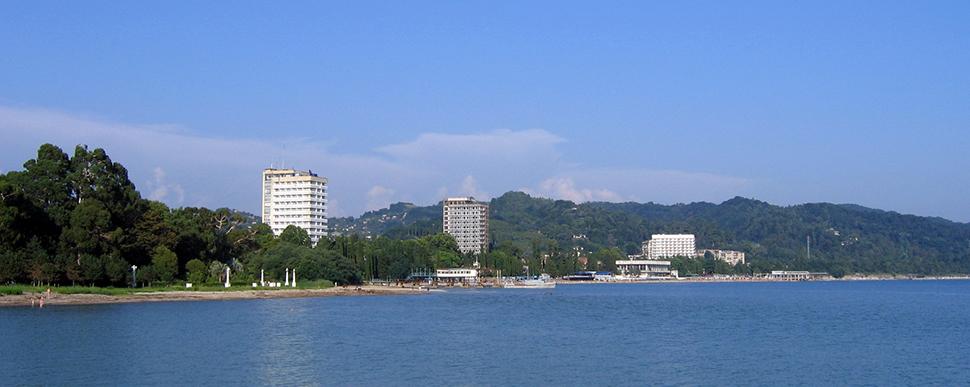
Sukhumi or Sokhumi (Georgian: სოხუმი, Sokhumi; Abkhaz: Аҟәа, Aqwa; Russian: Сухум, Sukhum) is a city in western Georgia and the capital of Abkhazia, a disputed region on the Black Sea coast. The city suffered significant damage during the Georgian–Abkhazian conflict in the early 1990s. In Georgian, the city is known as სოხუმი (Sokhumi) or აყუ (Aqu), in Megrelian as აყუჯიხა (Aqujikha), and in Russian as Сухум (Sukhum) or Сухуми (Sukhumi). The toponym Sokhumi derives from the Georgian word Tskhomi/Tskhumi, meaning beach. It is significant, that "dia" in several dialects of the Georgian language and among them in Megrelian means mother and "skuri" means water. In Abkhaz, the city is known as Аҟәа (Aqwa) which according to native tradition signifies water.
In the ancient Greek sources (Pseudo-Skilak of Kariand- IV c. B. C. ) the city is referred to as Dioscurias. According to the antique traditions this name originates from the mythical Dioskouri, the twin brothers Castor and Pollux, sons of Zeus. It was believed that the town had been established by Castor's and Pollux's coachmen, theArgonauts Telkius and Amphyst. However the names of the town may simply be the Greek comprehension of the old Georgian word combination.
The medieval Georgian sources knew the town as Tskhumi (ცხუმი). Later, under the Ottoman control, the town was known in Turkish as Suhum-Kale, which can be derived from the earlier Georgian form Tskhumi or can be read to mean 'water-sand fortress'. Tskhumi in turn is supposed to be derived from the Svan language word for 'hot', or the Georgian word for 'hornbeam tree'.
The ending -i in the above forms represents the Georgian nominative-suffix. The town was initially officially described in Russian as Сухум (Sukhum), until 16 August 1936 when this was changed to Сухуми (Sukhumi). This remained so until 4 December 1992, when the Supreme Council of Abkhazia restored the original version, that was approved in Russia in autumn 2008, even though Сухуми is also still being used.
In English, the most common form today is Sukhumi, although Sokhumi is used as well by some sources, including Encyclopædia Britannica and MSN Encarta.


